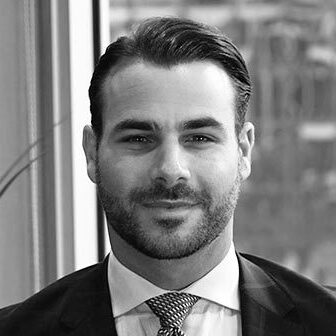In estate planning for ultra-high net worth (UHNW) families, technical aspects like tax planning and investment strategies can consume an advisor’s attention. However, advisors to these families have a real opportunity and responsibility to facilitate conversations between the different generations to ensure a meaningful transfer of wealth and make a positive impact through philanthropy.
The foundation of a great advisory relationship is cultivating a deeper connection between the advisor and the client. This connection creates the necessary space for the client to clearly articulate their goals and desires for their wealth. Among these goals is the desire to instill positive ethical values, financial discipline, and appreciation for the true meaning of wealth. Moreover, as the next generation of children comes into the picture, the wealthy want to ensure that they pass on not just wealth but also the right attitudes and perspectives about life. These aspirations are shared across their income and net worth spectrum, emphasizing the importance of preparing their children and grandchildren for charitable giving. By understanding and regularly revisiting these goals, advisors can more effectively execute the technical aspects of client service.
Family plays a paramount role in the lives of UHNW clients, regardless of their unique backgrounds or the different paths through which their wealth was acquired. Love for their children and grandchildren is a unifying theme. These clients want what is best for their descendants, which can vary significantly within their circumstances. In many cases, the most significant part of financial conversations is not solely focused on wealth preservation but also on passing down values along with the valuables.
The UHNW advisor acts as a powerful mediator, facilitating open and respectful conversations between different generations of the client’s family. It’s vital that these discussions are part of the beginning of the estate planning process instead of an afterthought. These conversations can be emotionally charged, so the role of the advisor in this is a delicate one – the objective is not to persuade individuals about what to do with their wealth but rather to help different generations find common ground regarding their values and financial philosophies.
But where to begin? A helpful starting point often revolves around discussing views about charitable giving as a foundation for addressing more complex issues. Establishing a consensus on philanthropy may help younger generations understand their potential inheritance and its reasons. Furthermore, it allows families to discuss their beliefs and find common ground even when perspectives differ, and charitable giving is not part of the legacy equation.
With the potential sunset of the generous estate tax exemption established by the Tax Cuts and Jobs Act of 2017, the time to act is now. We work closely with clients to help them benefit from the current tax framework. The choice between strategies depends on how involved the individual and their family wish to be after making irrevocable and/or charitable gifts.
Estate planning is all about playing the long game to secure the wealth and legacy of the family for the next generation and beyond. One frequently overlooked tool in discussions with the wealthiest clients is the annual estate and gift tax exclusion, adjusted yearly for inflation. Gifts at or below a specific annual amount do not count toward the standard lifetime estate exemption. In 2023, the annual exclusion is set at $17,000 ($34,000 for a married couple) per individual gift recipient, an increase from the previous year. While this amount may appear relatively insignificant compared to the total value of assets held by UHNW clients, it is essential to remember that this is an annual limit per recipient. By consistently giving up to the annual limit to a substantial group of beneficiaries, tax-efficient giving can accumulate significantly.
An emerging strategy involves front-loading this giving in certain situations, such as funding a 529 college savings plan for a grandchild. It is possible to contribute five years’ worth of exempt gifts and allocate that money to a 529 plan for a beneficiary. Although this approach exhausts the annual exclusion for that person over the next five years, its power becomes evident when envisioning the growth potential of a 529 account established for a newborn grandchild. Over time, the gift can compound and substantially contribute to the child’s educational future.
Preparing the next generations to inherit substantial wealth or engaging in charitable giving is of utmost importance for the wealthiest families. While technical aspects like tax efficiency and investment strategies are crucial, they should not overshadow the fundamental values and perspectives that families wish to pass on. With the guidance of advisors to place these discussions at the forefront of the planning process, families can be proactive in their estate planning and the strategic utilization of today’s tax strategies to maximize the potential of their legacy and preserve their wealth for generations to come.
At Lowell Newman, we collaborate with our clients and their professional advisors to help provide guidance toward an effective estate plan that proactively addresses a family’s desires for the most efficient and meaningful transfer of wealth. So, let’s think ahead and discuss any questions you may have about your client’s case.
About the Author

Alec S Lowell
Alec is a Certified Financial Planner® with extensive knowledge in the insurance and financial services industries. Since graduating from The Ohio State University in 2014 with a degree in Finance, his focus has been on methodically serving the financial needs of individuals, families, and businesses alike.
